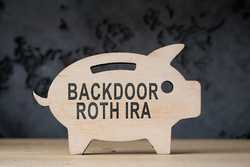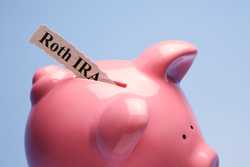How to Become An Accredited Investor?

Our evaluations and opinions are not influenced by our advertising relationships, but we may earn a commission from our partners’ links. This content is created by TIME Stamped, under TIME’s direction and produced in accordance with TIME’s editorial guidelines and overseen by TIME’s editorial staff. Learn more about it.
Certain alternative investments—such as hedge funds, private equity, and venture capital—aren’t available to anyone with an investment account. This is because they’re generally not registered with the U.S. Securities and Exchange Commission (SEC). If you’d like to invest in these things, you’ll likely need accredited investor status first.
However, you can’t just sign up to become an accredited investor. You’ll first need to meet specific SEC-established requirements. Here’s what to know about accredited investors, how to become one, and the kinds of assets in which you can invest once you have this status.
An accredited investor can put money in unregistered assets that aren’t accessible to the general public. Because these assets aren’t registered with the SEC, they’re also unregulated, meaning investors have fewer protections. In limiting these types of investment to presumably more knowledgeable (and more affluent) investors, the SEC seeks to protect naive individuals with fewer assets from risking their savings and their futures. If you are an accredited investor, it’s essential to live up to your status by doing your due diligence before you invest in hedge funds, startups and the like.
As an accredited investor you can have an important impact on early-stage companies and the overall economy. For instance, many accredited investors serve as a key source of capital for promising new companies, allowing them to grow, create jobs, and foster change in their industries.
Many accredited investors also have strong investing and business expertise and can share that knowledge in an angel investor role. This may help new businesses better address potential challenges that arise, increasing their risk of success.
If you’d like to become an accredited investor, you need to meet one of the following criteria:
Certain entities can also earn accredited investor status, including trusts with assets over $5 million managed by individuals with significant investment expertise, entities in which shareholders are all accredited investors, and qualifying entities with investment assets totaling $5 million or more.
There’s no one agency that confirms your accredited investor status. Instead, the firm, fund, or platform you’re investing through will likely request verification. You can prove you’re an accredited investor by getting a verification letter from an attorney or a licensed financial professional or by providing financial documentation.
Here are some examples of individuals who could qualify for accredited investor status:
Accredited investors can choose to invest in many assets and entities, including the following:
If you are accredited you can invest money through a venture capital firm, hedge fund, or private company. Many other channels and opportunities also exist for accredited investors. Here are some platforms and their available investment options.
| Platform | Type of investment |
|---|---|
Masterworks | Fine art |
Yieldstreet | Art, private equity, transportation, private credit, real estate, venture capital, and more |
Crowdstreet | Commercial real estate |
AcreTrader | Farmland |
Percent | Short-term debt |
Accredited investors have access to high-risk, high-reward investments that aren’t available to the general public, but you’ll need to meet certain requirements to become one. While you could see significant gains as an accredited investor, significant losses are also possible. Gaining experience as an investor and doing your due diligence can offer some protection.
You can invest in unregistered assets—including hedge funds, private equity real estate, venture capital and startups, certain REITs, and private securities. These assets aren’t available to a typical investor and could potentially result in significant gains, though significant losses are also possible.
No. Because the investments open to accredited investors are not regulated by the SEC and thus carry great risk, there are stringent SEC requirements for becoming one. These involve income, net worth, and investment experience.
Companies verify your accredited investor status in a few ways. You may need to provide financial documentation, such as tax returns, bank statements, investment account statements, or W-2s. Alternatively, you could get a letter from a third party, such as an attorney or a financial professional, confirming your accredited investor status.
The information presented here is created by TIME Stamped and overseen by TIME editorial staff. To learn more, see our About Us page.




